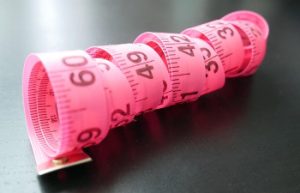🥀 Why 96% of Diets Fail — and What to Do Instead

If diets worked, we’d all be thin by now.
Every January, millions of people make solemn promises to eat clean, count calories, and start fresh. And every March, most of those same people have quietly given up — feeling defeated, hungry, and a little ashamed.
It’s not a lack of discipline.
It’s biology, psychology, and a tiny bit of rebellion.
Let’s unpack why 96% of diets fail — and what to do instead if you actually want lasting change.
1. Diets Fight Human Nature
Your brain doesn’t care about your diet goals. It cares about survival, and it runs on autopilot.
When you restrict food, your body can interpret that as a famine, but more importantly, you’re fighting your autopilot. If you’re successful at restricting food, you might even slow your metabolism, increase hunger hormones, and make food thoughts louder. That’s not weakness — that’s just the way bodies and brains work.
So, when you “cheat” on your diet, it’s not moral failure. It’s your mind and body working the way they’re designed.
2. Diets Create Forbidden Fruit Syndrome
Tell a child not to touch something, and what’s the first thing they do?
Your brain works the same way.
When certain foods become “forbidden,” your subconscious labels them as more valuable — rarer, exciting, even romantic. The internal pressure to have them builds, and builds …
This increase in desire is called reactance — the psychological pushback against restriction.
It’s why saying “I can’t have chocolate” eventually turns into “I’ll just have one square,” followed by “Well, I’ve ruined it now, I may as well eat the lot.”
3. Diets Don’t Address the Real Problem
Weight gain isn’t a maths problem. It’s a conditioning problem.
You don’t overeat because you lack willpower. You overeat because your brain has learned to pair certain feelings — stress, boredom, loneliness, reward — with food.
Unless that emotional link is erased, no diet will ever last. You’ll keep defaulting back to the old patterns once the internal pressure becomes bigger than even the strongest willpower in the world can resist.
The solution isn’t to starve the body — it’s to retrain the brain.
4. What Happens When the Diet Ends
Every diet comes with an invisible expiration date. You can only count almonds and decline birthday cake for so long before something inside you rebels.
When that happens, your body is primed to regain weight fast — because it’s been conserving energy the whole time. Also, when people lose weight quickly, they don’t just lose body fat, they also lose muscle and that lowers your metabolic rate and creates more fat. That’s why people so often end up heavier than when they started.
A Short Story: The Great Lettuce Rebellion
Tina once joined a group diet at work — the kind with weigh-ins and motivational slogans. She followed it perfectly for five weeks.
On week six, her co-workers brought in a birthday cake. She declined politely, then went home and ate half a cheesecake by herself.
The next day, she said, “I felt possessed — like my body was saying, enough salad, woman!”
That’s the rebellion effect in action. Many dieters get to this stage, exploding out of their diet, and saying to themselves “Why am I doing this?” wrapped in shame and disappointment that they couldn’t keep it up something that we now know is physically and psychologically impossible.
When you stop fighting your body and start working with your brain, that rebellion disappears.
The Automatic Alternative
Instead of punishing yourself with rules, imagine removing the desire that causes overeating in the first place.
That’s what the Automatic Weight Loss Method does — it gently “rewires” your brain so that foods you used to “love too much” become neutral.
No more forbidden foods.
No more mental noise.
Just peace.
Once the craving link is gone, eating less happens naturally — not through self-denial, but through disinterest.
5. How to Start Breaking the Cycle
Try this mini-experiment:
-
For one day, give yourself full permission to eat anything.
-
Notice what happens when you take away the pressure.
Most people find they actually eat less. That’s your natural self-regulation returning.
Then, pick one food that still feels “too tempting” and use the 5-minute craving eraser that you’ll find HERE. When that craving fades, you’ll glimpse what freedom feels like.
The Bottom Line
Diets fail because they try to control behaviour instead of desire.
If you change the desire, behaviour changes itself.
When your brain stops shouting “eat,” weight loss becomes automatic.
To experience how that feels, visit
👉 AutomaticWeightLossMethod.com
and try the 5-minute craving eraser for yourself.
Final Thought
You don’t need another diet.
You need a quieter brain — and a better relationship with food.
That’s what lasts.
Why 96 Percent of Diets Fail — and What to Do Instead
Q1. Why do most diets fail?
Because they fight biology. Restriction only heightens food cravings and may even trigger survival mechanisms that drive you to eat even more. Willpower runs out; conditioning takes over.
Q2. What’s better than dieting?
Re-training your brain so that you simply stop wanting to overeat, or eat unhelpful food. When that desire is gone, eating less and eating better happens naturally — no rules required.
Q3. Does the Automatic Weight Loss Method involve calorie counting?
No. It focuses on rewiring desire, not controlling intake. People usually eat fewer calories automatically once their urges are gone.